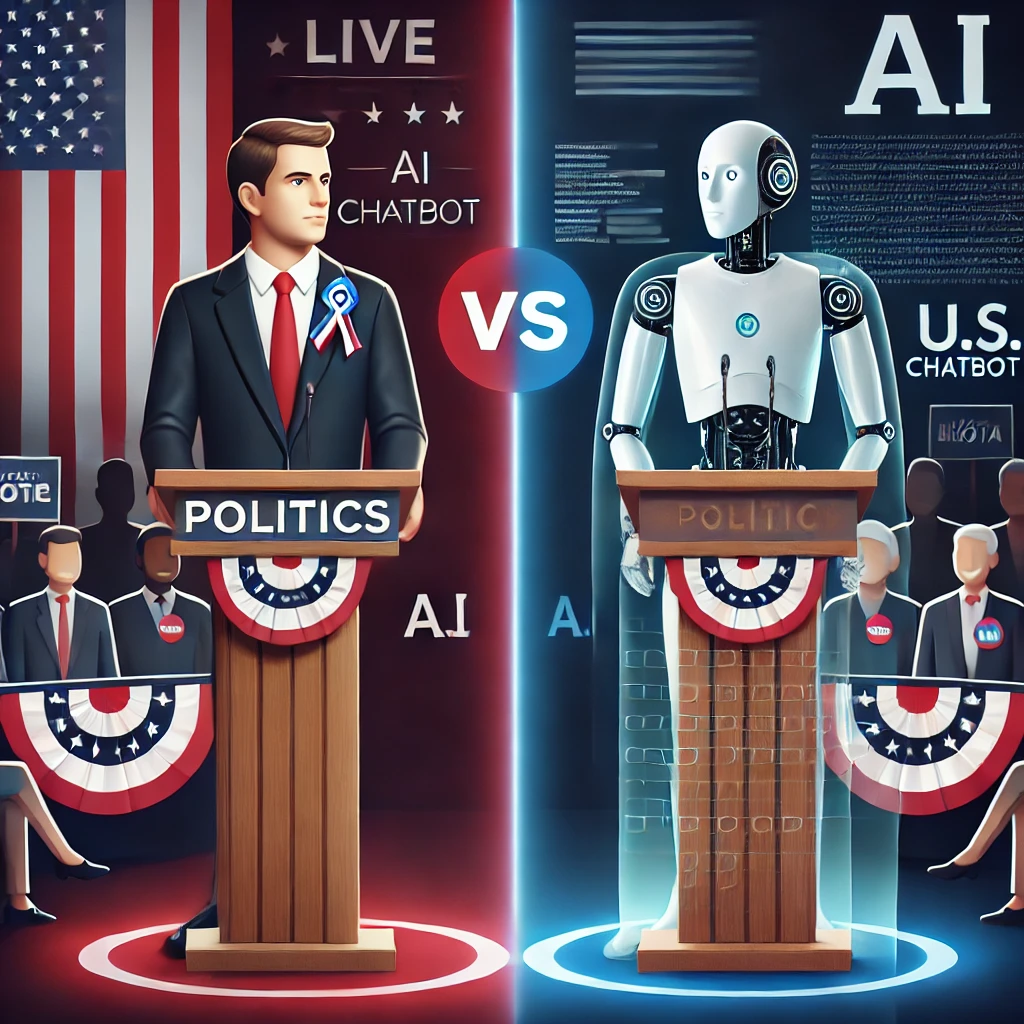In a bold and tech-savvy move, a long-shot congressional candidate in Virginia has created an AI chatbot as a stand-in for his opponent in the event that the incumbent declines to participate in another debate. The challenger, who is running against a well-established Democratic incumbent, is determined to engage in one more debate before Election Day and has turned to artificial intelligence to make it happen, regardless of the other candidate’s availability.
The AI Chatbot as a Debate Tool
The challenger, frustrated by the incumbent’s reluctance to agree to further debates, developed an AI chatbot to simulate the incumbent’s responses and positions on key issues. The chatbot is designed to mimic the Democratic incumbent’s speaking style, policy stances, and rhetoric, providing an interactive way to represent the missing candidate in a hypothetical debate scenario.
According to the challenger, the AI chatbot was trained on a wide range of public statements, interviews, and policy papers from the incumbent, allowing it to generate responses in real-time based on the topics of debate. The chatbot would be available to field questions from moderators or constituents in a format that mirrors a traditional debate, offering voters an experience that’s as close as possible to hearing from the real candidate.
A Creative Solution or a Gimmick?
While some view the AI chatbot as an innovative way to highlight the importance of debates in democratic elections, others have criticized the move as a gimmick, suggesting it may trivialize the political process. The challenger, however, insists that the creation of the chatbot underscores his commitment to transparency and public discourse.
“Voters deserve to hear from both candidates in a debate setting,” said the challenger in a statement. “If my opponent won’t show up, I’m going to make sure voters still get the chance to hear their side, even if it’s from an AI representation. This is about ensuring accountability.”
The Broader Implications of AI in Politics
The introduction of AI into the political arena, especially in a debate setting, raises questions about the role of technology in elections. While AI has been used in political campaigns for data analysis, voter outreach, and social media strategies, using AI chatbots to stand in for candidates is uncharted territory.
Critics argue that while the AI chatbot may be able to replicate the incumbent’s positions, it lacks the nuance, spontaneity, and emotional depth of a live candidate. The chatbot’s responses are based on past statements and cannot account for shifts in policy or address new issues that arise in real-time.
On the other hand, supporters of the idea suggest that the AI chatbot could serve as a useful tool to hold politicians accountable. By referencing a candidate’s previous statements, voters can compare how closely their current rhetoric aligns with past promises or positions.
The Incumbent’s Response
As of now, the Democratic incumbent has not agreed to participate in the proposed debate with the challenger or the AI chatbot. The campaign has largely dismissed the chatbot as a stunt, suggesting that voters are more interested in real solutions than in artificial intelligence simulations.
However, the challenger hopes that the creation of the AI chatbot will generate enough attention to pressure the incumbent into engaging in one final debate. The goal, according to the challenger, is to provide voters with as much information as possible before they head to the polls, and if AI can help facilitate that, then it’s worth exploring.
The Future of AI in Politics
The use of AI chatbots in political debates may be novel today, but it raises interesting possibilities for the future of political discourse. AI could potentially be used to fact-check debates in real-time, analyze candidate statements for consistency, or even provide voters with more personalized insights into a candidate’s policy positions.
However, the use of AI to stand in for real candidates will likely remain controversial. While it may offer a solution for candidates who avoid debates, it also introduces ethical questions about authenticity and the limitations of AI in representing human thought and leadership.
Conclusion
Virginia’s long-shot congressional candidate has made headlines with his decision to create an AI chatbot as a stand-in for his incumbent opponent in the absence of a final debate. While the move has sparked debate about the role of AI in politics, it has also drawn attention to the broader issue of candidate accountability and the importance of open discourse in elections. Whether or not the AI chatbot becomes a regular feature of future campaigns, it represents a creative and provocative use of technology in the political landscape.





